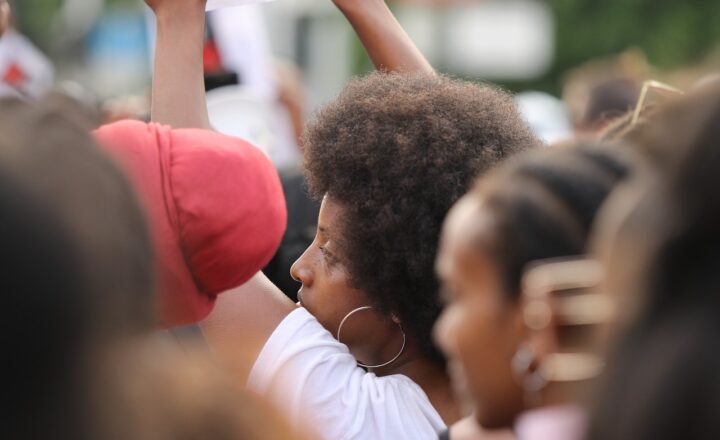
The Federal Bureau of Investigation (FBI) is one of the most powerful law enforcement agencies in the United States, established in 1908. With a mandate to investigate complex crimes and ensure national security, the agency has been pivotal in shaping modern law enforcement. However, the FBI’s history is marred by numerous decisions that have sparked intense controversy and debate. In this article, we will explore some of the most controversial actions taken by the FBI throughout its history that have raised ethical, legal, and moral questions.
**1. The COINTELPRO Operations**
The Counter Intelligence Program (COINTELPRO) was initiated in the late 1950s under then-FBI Director J. Edgar Hoover. Initially aimed at surveilling and disrupting the activities of the Communist Party of the United States, COINTELPRO expanded to target civil rights organizations, feminist movements, and various activist groups. The methods employed included infiltration, disinformation, and harassment.
One of the most notable instances involved activism against the civil rights movement, targeting leaders like Martin Luther King Jr. Hoover’s FBI sought to undermine King by attempting to discredit him through wiretaps and threatening anonymous letters. The revelation of COINTELPRO’s unethical tactics in the 1970s not only shocked the American public but also led to widespread calls for greater oversight of federal agencies.
**2. The Watergate Scandal**
The Watergate scandal represents one of the most significant political scandals in U.S. history, ultimately leading to the resignation of President Richard Nixon. The FBI’s role in this scandal is a focal point of controversy, particularly concerning the agency’s handling of investigations into the break-in at the Democratic National Committee headquarters.
As the scandal unraveled, it became apparent that Nixon had utilized the FBI to obstruct justice. The FBI was tasked with investigating the break-in, but actions taken by the agency to slow down or impede the investigation drew severe criticism. This included covert orders from Nixon to intervene in and mismanage the investigation, leading to accusations that the FBI was complicit in presidential wrongdoing.
**3. The Targeting of Civil Rights Leaders**
In addition to targeting groups as part of COINTELPRO, the FBI’s historical surveillance and harassment of civil rights leaders expanded far beyond Martin Luther King Jr. The agency monitored and harassed prominent figures like Malcolm X and organizations such as the Black Panther Party. These actions often included covert wiretapping, infiltration of meetings, and even attempts to instigate conflict between factions.
This controversial approach raised severe ethical questions about the FBI’s commitment to upholding civil liberties, as minority activists faced unwarranted scrutiny and suppression. Critics argue that the FBI’s actions during this time reflect a troubling misuse of power against individuals advocating for equality and justice.
**4. The Branch Davidian Raid**
The FBI’s 1993 siege at the Mount Carmel Center in Waco, Texas, ended tragically and remains a significant point of contention. The standoff began with a raid by the Bureau of Alcohol, Tobacco, Firearms, and Explosives (ATF), leading to the FBI taking over negotiations.
After a 51-day standoff, the FBI launched a final assault involving tear gas. The situation culminated in a fire that consumed the compound, leading to the deaths of 76 individuals, including many children. This incident raised questions about the FBI’s aggressive tactics, the decision-making involved in escalating the standoff, and whether the government overstepped its bounds when engaging with civilians.
Public outcry in the wake of the tragedy sparked debates about law enforcement’s approach to religious groups and the role of federal agencies in handling domestic crises. It became a defining moment in the FBI’s history and fueled a growing mistrust of federal authority among certain groups.
**5. The Boston Marathon Bombing Investigation**
The FBI faced criticism for its handling of information related to the 2013 Boston Marathon bombing. In the lead-up to the attack, it was revealed that the agency had received several warnings about one of the suspects, Tamerlan Tsarnaev, but had not acted on the intelligence effectively. Following the bombing, the FBI’s investigation raised questions about how it monitored potential threats and the extent of its abilities to share information with local law enforcement.
Critics argued that if the FBI had acted on available information, it could have potentially prevented the tragedy. This delay in responding to prior intelligence raised important debates about the balance between national security and individual privacy, especially in a post-9/11 world where surveillance practices escalated.
**6. The Surveillance of Activists and Journalists**
In recent years, the FBI has faced scrutiny for monitoring and surveilling journalists and activists, particularly in the context of reporting on protests such as those following the killing of George Floyd and the Black Lives Matter movement. Documents revealed that the FBI was tracking social media posts and group activities, blurring the line between legitimate law enforcement and the infringement of constitutional rights.
The debates surrounding this surveillance illustrate a growing tension between national security and First Amendment rights. Many civil rights advocates have condemned these actions, likening them to past abuses under COINTELPRO. Furthermore, concerns about government overreach have revived discussions about the need for better accountability and oversight.
**Conclusion**
Throughout its history, the FBI has made numerous controversial decisions that have left lasting impacts on American society, civil liberties, and the perception of federal authority. From its early days under J. Edgar Hoover to modern-day practices, these actions often reflect a complex interplay of national security concerns and citizens’ rights. Understanding these controversial decisions is vital for addressing the challenges of big government power, and they open the door for discussions about the necessary checks and balances that must exist in a democratic society, ensuring both security and freedom.
The FBI’s legacy, while significant in maintaining national security, is a reminder of the importance of ethical considerations and the need for accountability in law enforcement. As we reflect on these controversial moments, it becomes evident that the balance between preserving liberty and maintaining security remains a critical challenge for today’s society.







